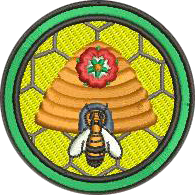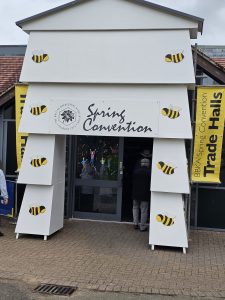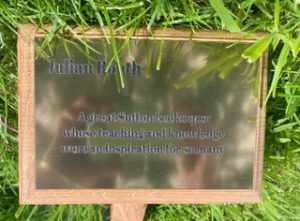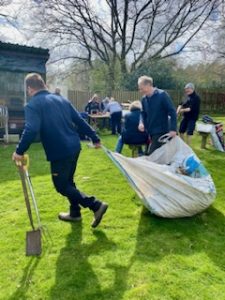by Leonie Williams
Our most recent talk was from PhD student Aaron Bhambra and was entitled The Bees and Wasps of
Sutton Park.
We all thought that this would be a topic close to our hearts, but I’d be confident to say that it
exceeded all expectations.
The focus was mostly on solitary bees and wasps focusing on their biology and classification. Wasps
were defended as important pollinators as well as the evolutionary origin of bees.
We heard about ‘cuckoo’ species who would hone in on their chosen mark by scent and sight to lay
their eggs in established nests. One type of wasp and it’s associated ‘cuckoo’ have been spotted in
Sutton Park for the first time this year, despite previously habiting southern Spain. It’s thought that
as climate change evolves and areas increase in heat, these insects are travelling in search of th
cooler weather.
The talk evolved more into the geological requirements of these insects. Sutton Park is one of the
largest urban parks in Europe and it has valuable areas of low heathlands. Heather, gorse and an
abundance of sand rich soil and paths are perfect for solitary wasps and bees, especially the cavity
nesting ones. Over 156 species have been spotted in Sutton Park and this number is expected to
increase over the next year. Some of these are as small as a few millimetres, so you’ll have to look
hard along the paths as you walk along.
In order to preserve the natural habitats of these solitary bees and wasps, drones are being used to
aerially photograph the site so that it is clear enough quality to be able to understand the division of
geology. For example, if the bracken isn’t controlled then it’s likely to invade the heather which can
then upset the delicate balance of the ecosystem or if the woodland spreads too far, then sunlight
won’t be able to reach the plants that are needing it. PhD students like Aaron are passionate enough
to spend their time flying drones to take these pictures to help us ensure that these natural areas of
scientific interest are preserved for years to come.
There was almost a stunned silence at the end of the talk and the overriding comments were that
we could have listened for a lot longer. It was informative, interesting and most of all, really
important to hear and appreciate our local resources and spend some time thinking about ‘cousins’
of our honey bees.






